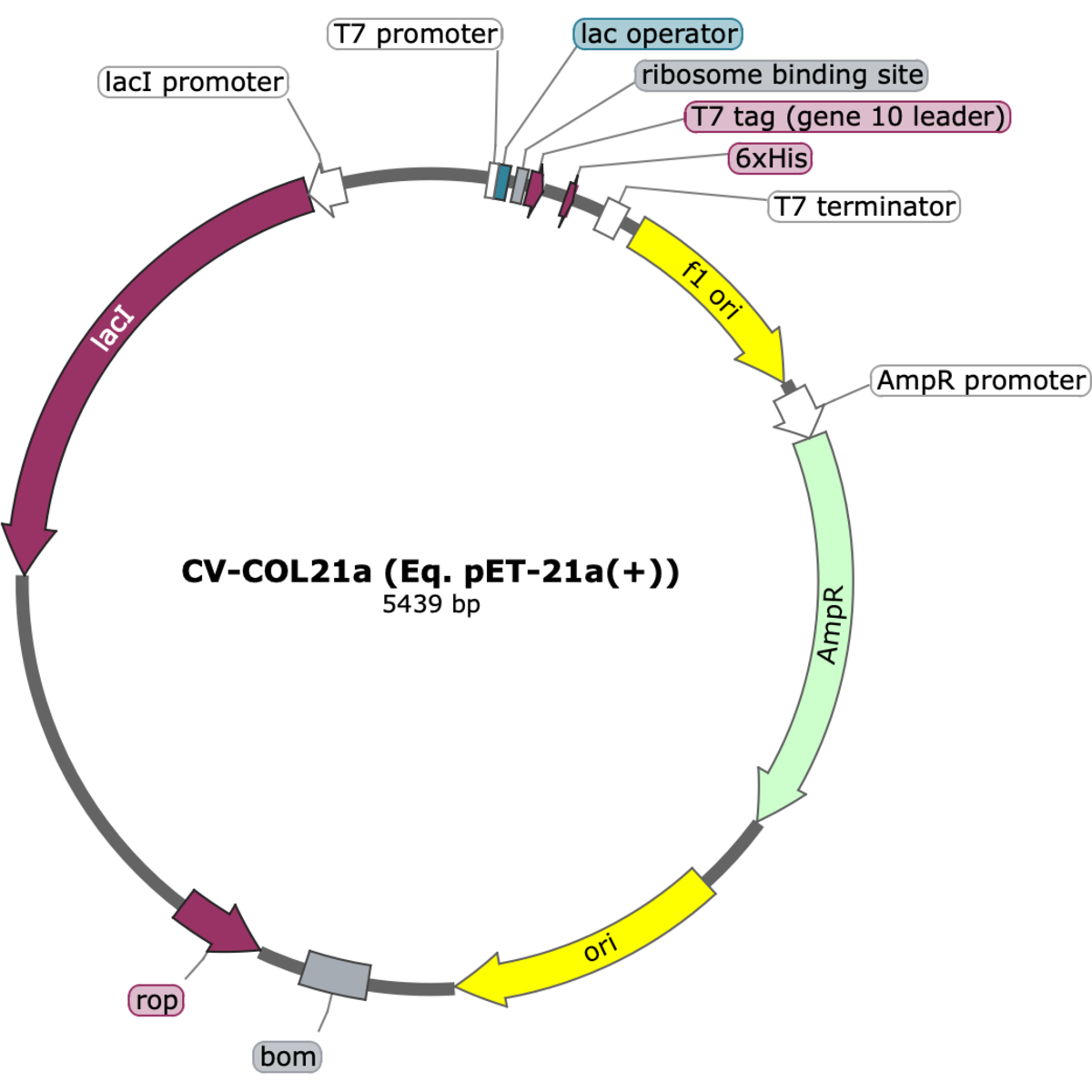CV-COL21a (Eq. pET-21a(+))
CV-COL21a (Eq. pET-21a(+))
CV-COL21a has a sequence identical to the pET-21a(+) expression vector. This medium-copy plasmid carries an ampicillin resistance marker and a ColE1-derived origin, and features a strong T7 promoter for high-level expression of recombinant proteins in E. coli. A C-terminal His·Tag sequence allows for simplified purification of expressed proteins using immobilized metal affinity chromatography (IMAC).
Format: 2 tubes with 5 µg in 5 µl of TE
Couldn't load pickup availability
Key Properties
Applications: Bacterial Expression
Copy number: Medium copy number
Expression: Constitutive
Host: E. coli
Selection markers: Amp / Carb (E. coli)
Sequence: CV-COL21a_Eq._pET-21a.gb
Share

Background
pET-21a(+) is part of the Novagen pET expression system, one of the most widely used platforms for recombinant protein production in E. coli. It employs the bacteriophage T7 promoter for robust, IPTG-inducible expression, making it a workhorse for structural biology, enzymology, and protein engineering. CV-COL21a preserves the exact pET-21a(+) sequence, ensuring compatibility with the extensive literature and protocols built around the pET system. Original documentation can be found in the Novagen pET System Manual (PDF).
Features
- Antibiotic selection: Ampicillin (bla)
- Origin of replication: ColE1-derived, medium copy (~15–20/cell)
- Size: ~5.4 kb
- Promoter system: T7 promoter for high-level expression in T7 RNA polymerase–containing hosts (e.g., BL21(DE3))
- Tagging option: Encodes a C-terminal His·Tag® sequence for protein purification by IMAC
- MCS: Multiple cloning site downstream of the T7 promoter and His·Tag® coding region
Applications
- High-level expression of recombinant proteins in E. coli
- Production of proteins for structural and biochemical studies
- Purification of His-tagged proteins using nickel or cobalt affinity resins
- Teaching and research involving inducible bacterial expression systems
Limitations
- Requires a host strain expressing T7 RNA polymerase (e.g., BL21(DE3))
- Strong expression may lead to protein misfolding or inclusion body formation
- Ampicillin resistance marker may be less stable than kanamycin in long-term cultures
- Not suitable for non-E. coli expression systems
